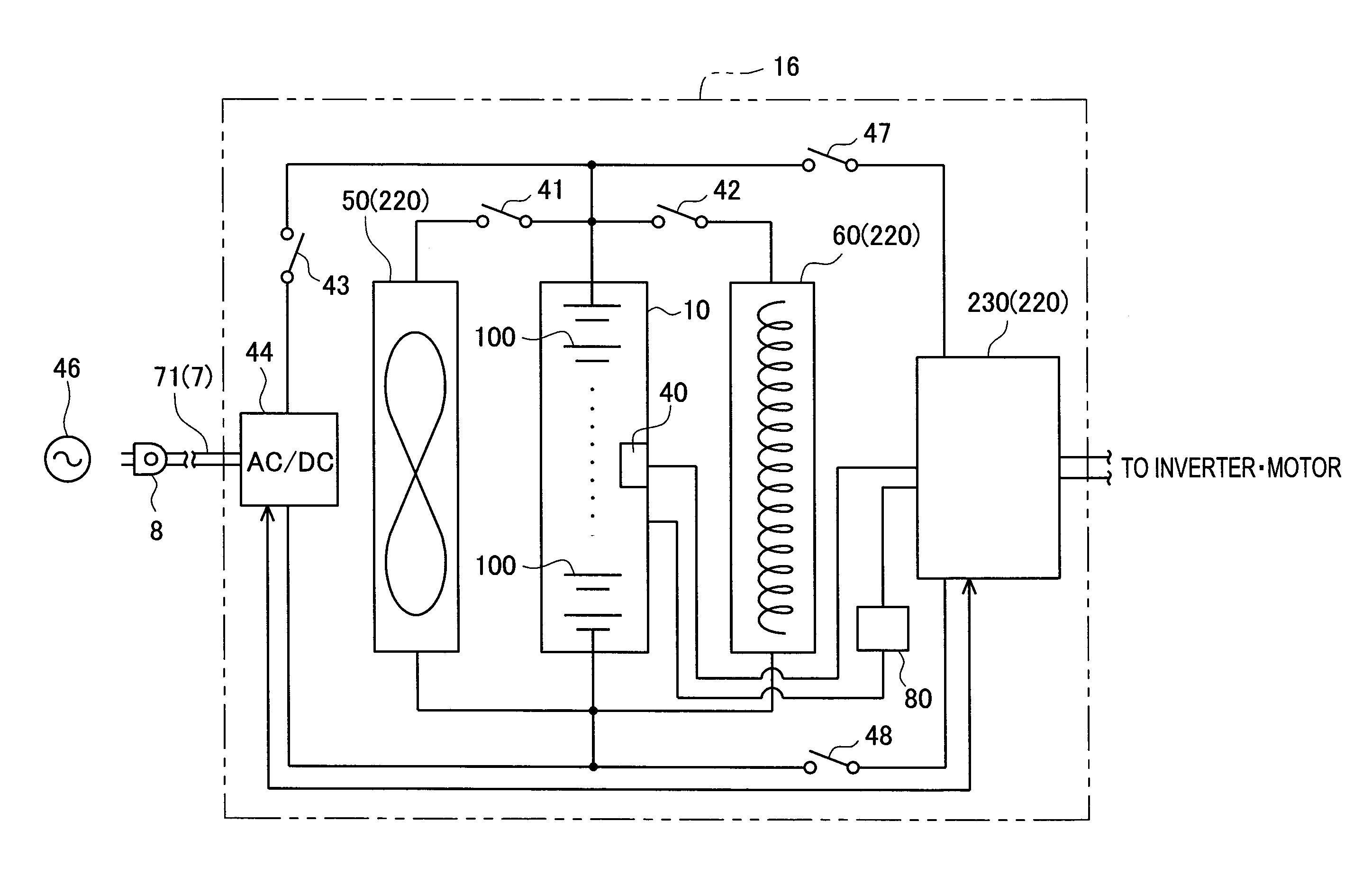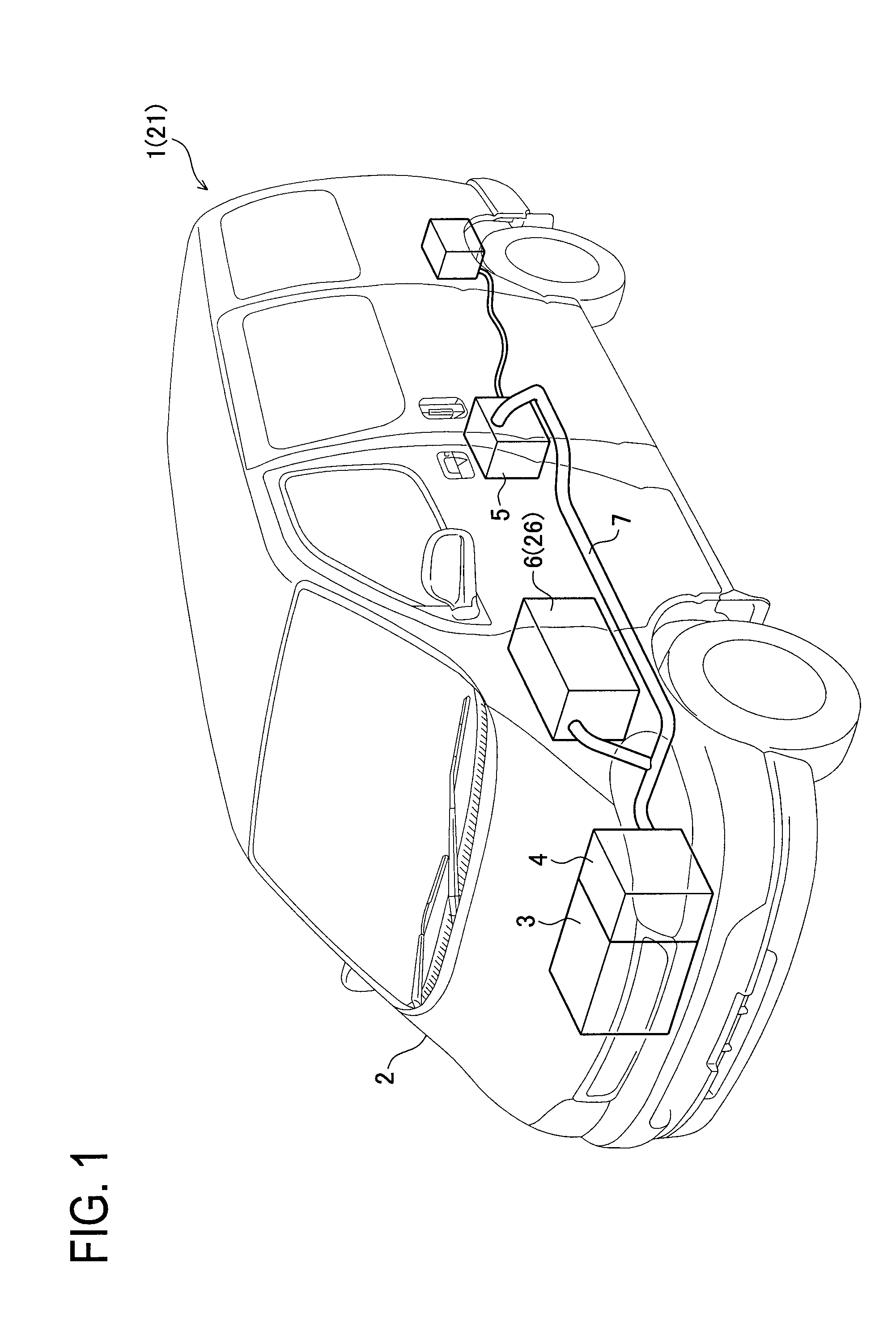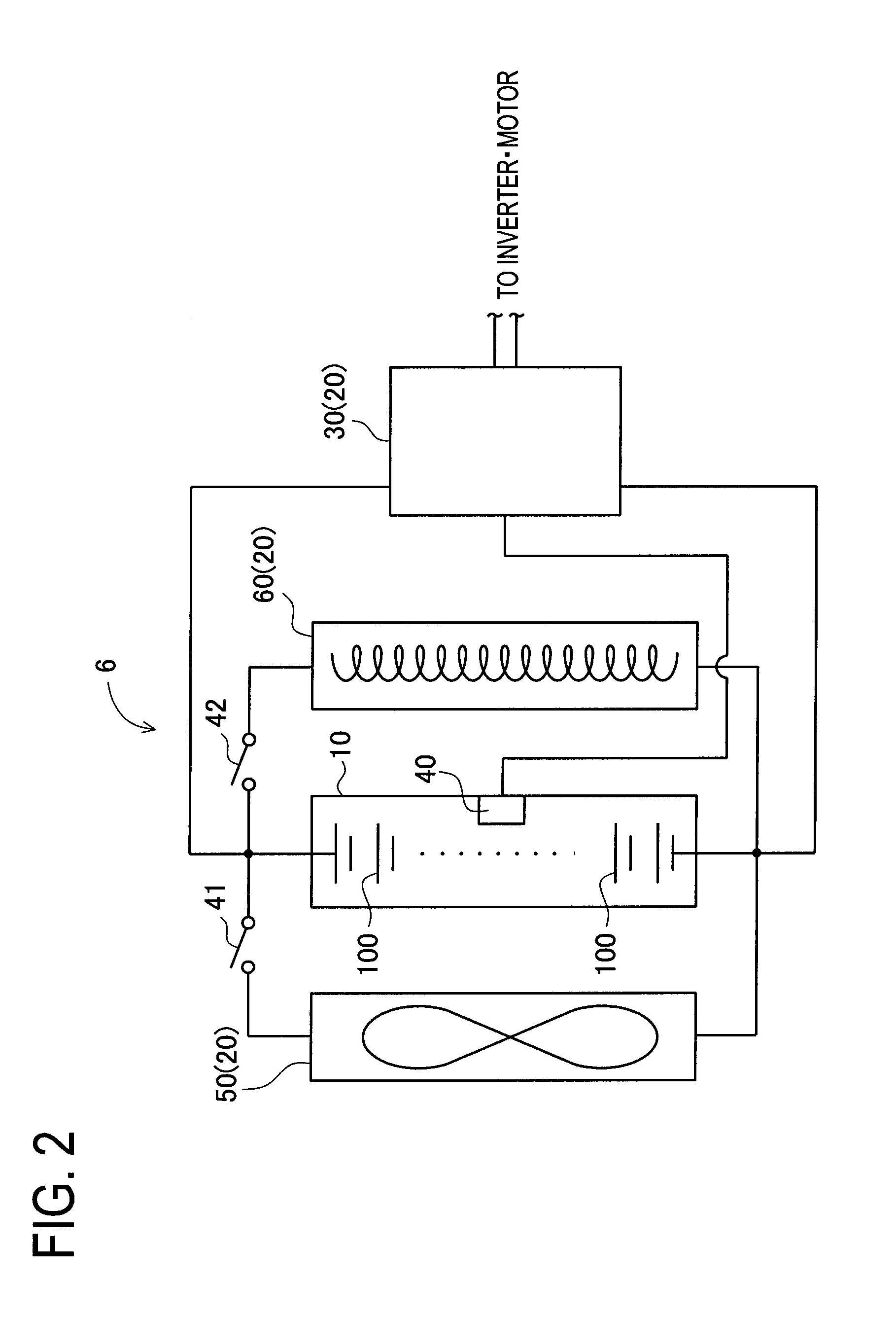Battery system and automobile
a battery system and battery technology, applied in the direction of battery/fuel cell control arrangement, secondary cell servicing/maintenance, electric devices, etc., can solve the problem of battery capacity decline, achieve efficient deactivation or inactivation, enhance the safety of lithium ion secondary batteries, and enhance the safety of automobiles
- Summary
- Abstract
- Description
- Claims
- Application Information
AI Technical Summary
Benefits of technology
Problems solved by technology
Method used
Image
Examples
example 1
[0049]A detailed description of Example 1 embodying the present invention will now be given referring to the accompanying drawings. As shown in FIG. 1, an automobile 1 of Example 1 has a vehicle body 2, an engine 3, a front motor 4, a rear motor 5, a battery system 6 and a cable 7. The automobile 1 is a hybrid electric automobile which is driven by parallel use of the engine 3, the front motor 4 and the rear motor 5. In particular, the automobile 1 is configured such that it is driven by using the engine 3, the front motor 4 and the rear motor 5 by known means, with the battery system 6 (more specifically, an assembled battery 10 of the battery system 6, see FIG. 2) serving as a drive power supply for the front motor 4 and the rear motor 5.
[0050]Of these components, the battery system 6 is mounted to the vehicle body 2 of the automobile 1 and is connected by the cable 7 to the front motor 4 and the rear motor 5. As shown in FIG. 2, the battery system 6 is provided with the assembled...
example 2
[0091]Next, a description will be given regarding Example 2 of the present invention referring to the drawings. A hybrid electric automobile 21 of Example 2 is shown in FIG. 1. This hybrid electric automobile 21 differs from the hybrid electric automobile 1 of Example 1 only in a battery system. As shown in FIG. 8, a battery system 26 of Example 2 is provided with an assembled battery 10 which is of the same type as that of Example 1 and a temperature control device 320 which is different from that of Example 1. The temperature control device 320 has a cooling device 50 and a heating device 60, both of which are of the same type as those of Example 1, and a microcomputer 330 which is different from that of Example 1. The microcomputer 330 has a ROM, a CPU, a RAM etc. which are not shown in the figure.
[0092]The microcomputer 330 first judges whether or not the battery temperature T of the lithium ion secondary battery 100 detected through the thermistor 40 is 45° C. And, if the micro...
example 3
[0127]Hereinafter, a description will be given regarding Example 3 of the present invention, referring to the drawings. FIG. 10 shows a hybrid electric automobile 11 of Example 3. The hybrid electric automobile 11 differs from the hybrid electric automobile 1 of Example 1 in a battery system. There is further provided a power supply plug 8 connected to the battery system. As shown in FIG. 11, a battery system 16 of Example 3 is provided with an assembled battery 10, a temperature control device 220, a conversion device 44 and a voltage detection device 80.
[0128]Of these components, the temperature control device 220 has a microcomputer 230, a cooling device 50 and a heating device 60. And, the voltage detection device 80 detects the voltage of battery (interterminal voltage) of each of the lithium ion secondary batteries 100 constituting the assembled battery 10.
[0129]The conversion device 44, formed by an AC / DC converter, is capable of conversion of the voltage of a commercial powe...
PUM
| Property | Measurement | Unit |
|---|---|---|
| temperature | aaaaa | aaaaa |
| temperature | aaaaa | aaaaa |
| temperature T | aaaaa | aaaaa |
Abstract
Description
Claims
Application Information
 Login to View More
Login to View More - R&D
- Intellectual Property
- Life Sciences
- Materials
- Tech Scout
- Unparalleled Data Quality
- Higher Quality Content
- 60% Fewer Hallucinations
Browse by: Latest US Patents, China's latest patents, Technical Efficacy Thesaurus, Application Domain, Technology Topic, Popular Technical Reports.
© 2025 PatSnap. All rights reserved.Legal|Privacy policy|Modern Slavery Act Transparency Statement|Sitemap|About US| Contact US: help@patsnap.com



